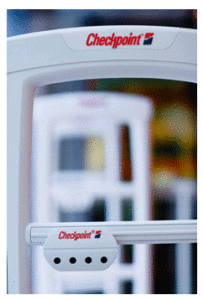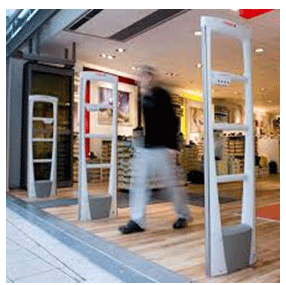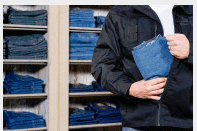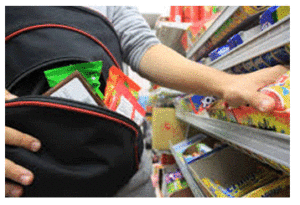It is not surprising that employee theft and shoplifting increases every year. With online “chat rooms” where shoplifters share their “methods” and the many ways they can get away with shoplifting, it is not surprising the losses across the globe are reaching staggering amounts.
In 2013, the losses due to shoplifting amounted close to $16 billion globally, a 34% increased over the previous year. The National Retail Security Survey revealed that in 2015 retail lost an approximate $45 billion due to shrinking, up by more than a billion from the previous year.
What are the expectations for 2016, and 2017? What will the losses amount to this year?
For more about this and other informational topics, follow the links below.
Employee Theft on the Rise According to Latest Retail Survey
Major retailers lost over $44 billion in thefts by customers and employees according to Jack L. Hayes International’s annual Retail Theft Survey.
Wesley Chapel, Fla. — Jack L. Hayes International, a leading loss prevention and inventory shrinkage control consulting firm, has released its 29th Annual Retail Theft Survey.
According to the survey, 438,000 shoplifters and dishonest employees were apprehended in 2016 by 23 large retailers who were able to recover over $120 million from the thieves.
“In 2016, dishonest employee apprehensions increased almost 10%, with the dollars recovered from these dishonest employees up nearly the same amount (9.3%). While shoplifting apprehensions and the dollars recovered from these shoplifters decreased ever so slightly, 0.2% and 0.9% respectively”, says Mark R. Doyle, president of Jack L. Hayes International.
According to the survey, one out of every 27 employees was apprehended for theft from their employer in 2016. The total number, 53,786, is an almost 10% increase compared to last year.
Over $42 million was recovered from dishonest employees in 2016, up 9.3% from 2015.
Survey participants apprehended 384,296 shoplifters in 2016, a slight decrease of 0.2% from the prior year. The average shoplifting case value in 2016 was $203.18, a slight decrease from 2015 when the value was $204.57.
C-stores may suffer from a bundle of cash-related issues, but tech-driven solutions are on the way.
One of the show-stopping numbers from the musical “Cabaret” includes the famous refrain, “Money makes the world go ’round.”
But money also makes the world of convenience retailing complicated. And problems such as cash miscounts, sticky-fingered employees and lack of data around dollars can stop the show for eager-to-perform operators who have to devote valuable time and resources to solving these snags.
To help shine a spotlight on the currency concerns c-store retailers face, CSP and Technomic conducted their seventh-annual cash-management report, commissioned by FireKing Security Group (complete results below). Finalized in March, the study surveyed 175 convenience operators who make or influence choices related to cash flow, banking and cash management in their stores. Thirty-seven percent of respondents operate one store, while 63% operate two or more locations.
Results from this year’s study reveal big concerns—and opportunities—for retailers’ cash-handling practices.
The Amazon Approach to Groceries Won’t Replace Stores
It’s a model that could thrive in dense, affluent areas. Most areas are neither dense nor affluent.
For a certain kind of urban professional, Amazon and Whole Foods are brands that define the consumption of staple goods: the weekly trip to pick up cheese, produce, maybe some pasture-raised organic beef; and the nice UPS man dropping off everything else, from toilet paper to truffle oil. On Friday, those folks learned that they are facing a future of truly one-stop shopping: Amazon.com Inc. plans to acquire Whole Foods Market Inc. for $13.7 billion.
But what about the rest of America? Well, if you happen to work for rival grocery chains, the news is not good. Competitors from Costco to Kroger to Dollar General saw significant chunks knocked off their market capitalization. Other casualties may include Walmart, the $15-an-hour minimum wage (Amazon is aggressively experimenting with cashierless stores), and the rather unique corporate culture that drives Whole Foods.

 A French Historian is accused of stealing American war heroes’ dog tags to sell on eBay.
A French Historian is accused of stealing American war heroes’ dog tags to sell on eBay.  As many of you know Alpha High Theft Solutions was acquired by Checkpoint Systems many years ago. Checkpoint has encouraged Alpha’s brand growth and innovation. Alpha has produced the best high theft solutions, hands down in the industry. Innovations like Spider Wrap, Keepers, Bottle Locks, Cable Locks, Shark Tags, specialized hard tags literally protect billions of retail products worldwide.
As many of you know Alpha High Theft Solutions was acquired by Checkpoint Systems many years ago. Checkpoint has encouraged Alpha’s brand growth and innovation. Alpha has produced the best high theft solutions, hands down in the industry. Innovations like Spider Wrap, Keepers, Bottle Locks, Cable Locks, Shark Tags, specialized hard tags literally protect billions of retail products worldwide. Shortage control and theft prevention for small retailers which have no Loss Prevention Associates in the store was the topic of a recent article in an online loss prevention magazine. The points were well made and much of it was directed at stores that may have district or regional Loss Prevention Managers. But the truth is there are many small, independent retailers with no affiliation to a larger company. How do these stores cope with reducing shrink and preventing theft? It could be a tough problem but Loss Prevention Systems Inc. (LPSI)has the solutions that can keep small stores keep shortage down and profits up.
Shortage control and theft prevention for small retailers which have no Loss Prevention Associates in the store was the topic of a recent article in an online loss prevention magazine. The points were well made and much of it was directed at stores that may have district or regional Loss Prevention Managers. But the truth is there are many small, independent retailers with no affiliation to a larger company. How do these stores cope with reducing shrink and preventing theft? It could be a tough problem but Loss Prevention Systems Inc. (LPSI)has the solutions that can keep small stores keep shortage down and profits up. In some regions, police departments warn retail stores and home owners of an increase in shoplifting and burglaries during the summer months.
In some regions, police departments warn retail stores and home owners of an increase in shoplifting and burglaries during the summer months.
 The National Association for Shoplifting Prevention studies have shown that there is not a profile for a typical shoplifter.
The National Association for Shoplifting Prevention studies have shown that there is not a profile for a typical shoplifter. Okay we know that shoplifters are one of the lowest forms of life. Stealing from people is not noble or right in any situation. I believe that shoplifters are a strong competitor for the oldest profession in the world. After all, I bet a cave man was able to steal a rock from another before prostitution even existed and politicians didn’t even exist yet. Even though some in Congress seem to have been around much too long.
Okay we know that shoplifters are one of the lowest forms of life. Stealing from people is not noble or right in any situation. I believe that shoplifters are a strong competitor for the oldest profession in the world. After all, I bet a cave man was able to steal a rock from another before prostitution even existed and politicians didn’t even exist yet. Even though some in Congress seem to have been around much too long.
 Have you ever noticed that when a convenience store robbery takes place the crook never demands all of the credit card slips? I have never heard of a bank robber pulling out a gun and yelling for the teller to give them all of the checks in the drawer. What is it the bad guys are always trying to get their hands on…CASH! While Loss Prevention departments do work on credit card and fraudulent check cases our bigger concern is cash theft and fraud. It has been my experience that in many incidents involving a stolen credit card or check, I have been able to work with bank investigators and police detectives to identify and in some cases resolve those crimes. In those situations there is usually a victim as well as a perpetrator of the crime. When it comes to cash loss cases it becomes another matter altogether, the victim is the store. While we may have video of the crime there may not be any other means of tying in additional information. Another issue with cash losses is that the stolen money cannot be tracked further. Stolen credit cards tend to leave a trail of locations where they are used which can lead to greater opportunities to pick up on additional evidence. The same can be true with fraudulent check writing cases. With a cash loss case, once it’s gone you don’t see it again, money is not traced.
Have you ever noticed that when a convenience store robbery takes place the crook never demands all of the credit card slips? I have never heard of a bank robber pulling out a gun and yelling for the teller to give them all of the checks in the drawer. What is it the bad guys are always trying to get their hands on…CASH! While Loss Prevention departments do work on credit card and fraudulent check cases our bigger concern is cash theft and fraud. It has been my experience that in many incidents involving a stolen credit card or check, I have been able to work with bank investigators and police detectives to identify and in some cases resolve those crimes. In those situations there is usually a victim as well as a perpetrator of the crime. When it comes to cash loss cases it becomes another matter altogether, the victim is the store. While we may have video of the crime there may not be any other means of tying in additional information. Another issue with cash losses is that the stolen money cannot be tracked further. Stolen credit cards tend to leave a trail of locations where they are used which can lead to greater opportunities to pick up on additional evidence. The same can be true with fraudulent check writing cases. With a cash loss case, once it’s gone you don’t see it again, money is not traced.